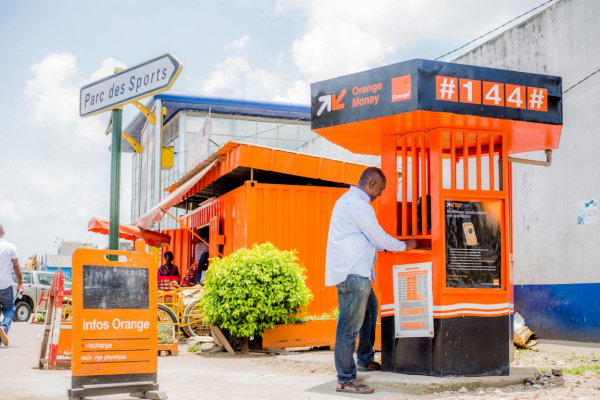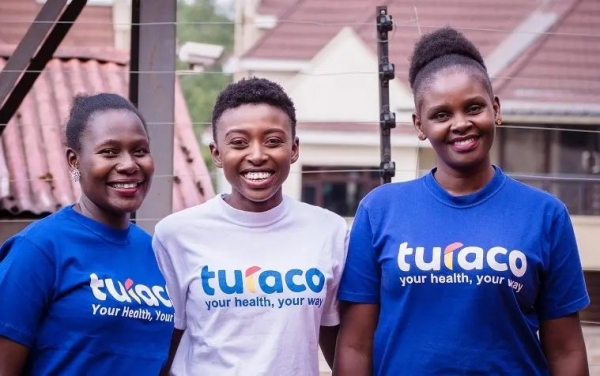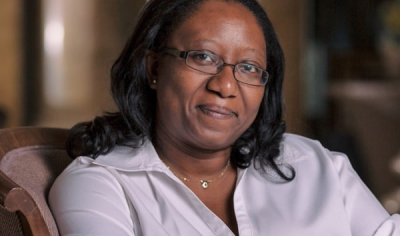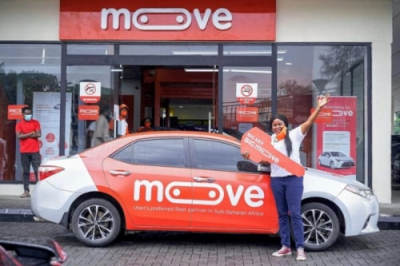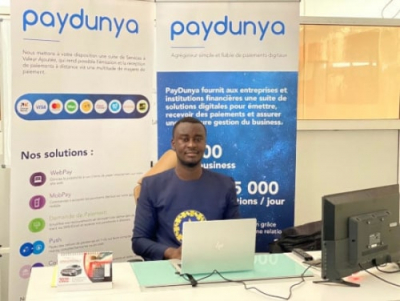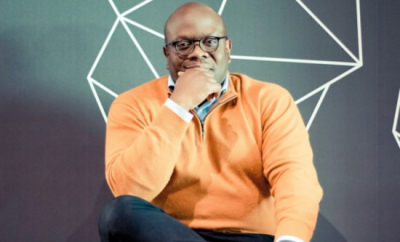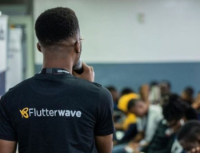
Finetech (9)
Last year, Côte d’Ivoire’s mobile money market was shaken by a new actor, which increased competition with an aggressive pricing policy. The competition forced strategic adjustments, much to users’ benefit.
In Côte d’Ivoire, Orange Money Afrique is no longer reserved for Orange Côte d’Ivoire’s users only. Indeed, to boost financial inclusion in the country the telecom operator opened access to its platform, allowing users to carry out various financial transactions irrespective of the network they are subscribed to.
According to Mariame Diaby Touré, CEO of Orange Money Côte d’Ivoire, to carry out their transactions, users only have to download the Orange Money Afrique app, register by following the required steps, and validate their mobile money account. Then, they can send or withdraw money, carry out merchant services and pay bills right from the app.
By opening Orange Money Afrique to other networks’ subscribers, Orange Côte d’Ivoire materializes the mobile money interoperability being advocated by the government since 2020. “It is an additional step towards financial inclusion,” says Mariame Diaby Touré.
Currently, the telecom operator is multiplying initiatives to remain the leader of the Ivorian mobile money market disputed with Wave, MTN Money, and MOOV Money. To get closer to its users, the operator has 41,000 kiosks installed all over the country. It also made significant investments in its network infrastructure to guarantee quality services. Thanks to those investments, Orange Money Afrique is accessible everywhere, even in remote areas.
“We are proud to be part of Orange Group, which has great network ambitions. We have covered almost every part of the country with 3G and 4G,” Mariame Diaby Touré indicates.
In Africa, healthcare access remains a major challenge despite the numerous e-health solutions being developed. The issue is mainly caused by financial problems. The low-cost insurance policy being developed by the two partners aims to address that situation.
Kenyan fintech Power Financial Wellness (PFW) recently announced a partnership with insurtech Turaco. According to a release dated April 26, the partnership aims to offer low-cost insurance -as low as US$2 monthly subscriptions- to African gig and salaried workers.
“Power is dedicated to providing a marketplace of financial services to working individuals across Africa. With Turaco, we now have a partner that helps digitize tailor-made insurance offerings. With Power’s ability to finance premiums and collect from workers, this partnership will help scale the delivery of affordable insurance to working individuals in Kenya and beyond,” commented PFW CEO Brian Dempsey.
PFW clients can subscribe to the insurance policies once Turaco’s API is integrated into the fintech’s digital platforms. PFW offers payment and loan services (insurance services will soon start with the API integration). As for Turaco, it offers low-cost claim settlement packages in Uganda, Kenya, Nigeria, and the United States of America.
In addition to health insurance, PFW clients have access to other insurtech products. These include credit life insurance, disability, theft, and a comprehensive range of inpatient and outpatient insurance.
Some African countries have a national health insurance scheme but only a small portion of the population is covered. According to the World Health Organization, while 91% of the population in Rwanda is covered by the national health insurance scheme, 33% is covered in Ghana and only 3% in Nigeria
Adoni Conrad Quenum
Credit card network VISA inaugurated its first African innovation hub in Kenya yesterday April 6. Based in Nairobi, the facility will serve as a framework for accelerating payment technology research in the sub-Saharan African region. It will be a mentorship hub for developers creating solutions that can revolutionize payments and e-commerce.
The studio will also help Visa clients and partners operating in Africa expand their services and access technological tools that will help them overcome some of the key challenges in their business environment.
VISA’s Nairobi innovation hub will now join the global network of innovation hubs operated by the credit card network since 2016. Currently, that global network is made up of hubs in Dubai, Singapore, San Fransico, and now Nairobi.
“Sub-Saharan Africa is a fast-growing region with a tech-savvy population. As we continue to grow digital payments adoption in the region, our aspiration is to deepen our collaboration with clients and partners in developing solutions that are designed around the unique needs of Africa,” says Aida Diarra (photo), Senior Vice President & Head of Visa in Sub-Saharan Africa.
In the past five years, the African fintech segment has recorded strong growth. Startups operating in that segment attracted the highest volume of investments, reflecting local populations’ interest in practical, customized, and affordable financial solutions.
For VISA, investing in that segment is a strategic move to consolidate its presence and market share. According to the credit card network, the Nairobi innovation hub will explore ideas that can support the growth of emerging payment systems such as contactless payment and cash on delivery. The hub will also explore the development of smart payment solutions that leverage blockchain, the Internet of Things, virtual reality, and biometrics.
Muriel Edjo
Less than two months after raising $10 million, mobility fintech Moove Africa secured additional resources to fund its expansion on and off the continent.
Moove Africa, a Nigerian-created fintech company that makes it easier for African entrepreneurs to access financing for new vehicle purchases, announced on Monday, March 14, that it raised $105 million in equity and debt in a Series A2 financing. The deal brings to $174.5 million the total funds raised to date by the company founded in 2019 by Nigerian-born Britons Ladi Delano and Jide Odunsi.
“Less than two years ago, we discovered this white space of mobility fintech and launched Moove. After surpassing 3 million trips in Moove-funded vehicles across Africa, rolling out our service in six new African cities, and connecting mobility entrepreneurs to the ride-sharing, e-logistics, and delivery markets, we are now leading this growing Fintech sector... We are thrilled to have the support of investors around the world who will help us take our model to the world,” commented Ladi Delano.
This new fundraising comes less than two months after Moove Africa obtained a $10 million financing facility from UAE-based investment firm NBK Capital Partners. The money, raised on 1 February 2022, was aimed at supporting the West African expansion of Uber's exclusive partner for vehicle financing and provisioning in sub-Saharan Africa.
The mobility fintech plans, over the next six months, to continue its expansion into seven new markets in Asia, Europe, the Middle East and North Africa (MENA) region. The company, which is present in six African cities, also intends to build new partnerships while expanding its range of vehicles.
In Africa, less than 5% of all new vehicles are purchased with a loan compared to 92% in Europe, Moove Africa complains. On the continent, the vehicle ownership rate is below 44 cars per 1,000 people, compared to 640 per 1,000 in Europe and 816 in the United States, the mobility fintech continues. According to the company, Africa’s low ownership is due to a low penetration rate of borrowing, which it believes has limited the ability of more than 1 billion Africans on the continent to purchase new vehicles. According to Ladi Delano, millions of entrepreneurs in emerging markets have limited or no access to vehicle financing, even though the market opportunity is vast. The two-wheeler rental market is estimated at $80 billion in sub-Saharan Africa, according to data provided by Moove. Yet the continent recorded fewer than 900,000 new vehicle sales in 2019, compared to 17 million in the United States.
Chamberline MOKO
Almost seven years after launching, the online payment company has entered a fourth African market. Its ambition remains to make digital payments accessible to a larger number of people.
Paydunya, the Senegal-based online payment start-up, has recently started operations in Togo.
Already present in Senegal, Côte d'Ivoire, Benin, and Burkina Faso, Paydunya is coming to Togo with the ambition to “make digital payments accessible, regardless of the payment method used, regardless of the area and region, and regardless of the sector of activity, whether public or private.”
The payment aggregator maintains that it wants to provide "real added value" with secure solutions for receiving and making payments via mobile money (T-money, Flooz) and bank cards.
“We want to facilitate access to digital payments to all businesses regardless of their size or sector of activity and thus participate and contribute to the vast financial inclusion project in Togo,” Aziz Yérima, CEO of PayDunya told We are Tech. “Our launch in Togo is a response to the needs of our customers," intended to "provide them with accessible payment solutions,” he added.
A growing fintech ecosystem
In Togo, Paydunya joins a growing fintech ecosystem that has welcomed in recent years, young "promising" startups such as CinetPay, Semoa, and Gozem, the super App specialized in e-transport and e-logistics.
Paydunya, which reached 65,000 transactions per day in 2021, intends to take advantage of this Togolese environment that fosters digitalization and financial inclusion. Data from the BCEAO shows that over 72% of the Togolese population holds at least one account in a financial institution or a mobile money account.
Given the greater use of Mobile Money in Togo, since it was adopted in 2016, more Fintechs have been eyeing Togo. Wave, a mobile money solution - which Paydunya integrates into its range of solutions - is among them; it revealed plans to come to Lomé. Due to its competitive fee structure, the U.S. unicorn, whose operational base is in Dakar, will surely shake the Togolese mobile money transfer ecosystem (which is presently shared between Moov and Togocel), and aggregators like Paydunya could gain the most from this digitalization-driven disruption.
An idea born on campus
Paydunya’s founders, Aziz Yerima, Youma Fall, Honoré Hounwanou, and Christian Palouki, came up with the idea in 2014 while studying at the École Supérieure Multinationale des Télécommunications (ESMT), in Benin, Ivory Coast, Senegal, and Togo. They launched the fintech the following year.
In 2021, nearly 7 years later, the fintech claims to have processed more than 15 million transactions valued at CFA 110 billion. Its customer base is estimated at more than 1,200 B2B clients.
Fiacre E. Kakpo
Over the past five years, mobile money has become increasingly valuable in Africa. Today, it has become the largest payment tool in Africa. Its continent-wide interoperability has the potential to further unlock the potential of intra-African trade.
Digital payment gateway fintech MFS Africa announced on 16 February 2022 that it has joined the Pan African Payment and Settlement System (PAPSS). The PAPSS was launched in January 2021 by the African Continental Free Trade Area (AfCFTA).
According to the fintech, the partnership will enable its 320 million African mobile money customers to receive and make merchant payments in the 54 member-States of the AfCFTA.
Joining the PAPSS, according to Dare Okoudjou (pictured), founder and CEO of MFS Africa, translates a desire to further enrich this pan-African solution that "provides small and medium-sized enterprises (SMEs), entrepreneurs and merchants with easier access to formal payment services that will help them grow their businesses.”
In its "State of the Industry Report on Mobile Money 2021," the Global System Operators' Association (GSMA) said Africa was once again the champion in mobile payments with $490 billion exchanged on the continent compared to $767 billion globally. The number of mobile money accounts was 548 million on the continent compared to 1.2 billion globally.
“Africa is the global leader in mobile money services...This demonstrates how mobile money services play a key role in the continent's economic growth and facilitate financial inclusion,” said Mike Ogbalu III, CEO of PAPSS,
Adoni Conrad Quenum
The fintech Maviance raises a new round of funding, less than a year after the last one, to pursue its expansion strategy. According to a Feb. 18 legal announcement, Finafrik Ltd, a private company based in London and specialized in the development of commercial software, has become a shareholder of Cameroonian fintech Maviance PLC. The latter is the owner of the digital payment platform Smobilpay.
Through this operation, the capital of Mavaince increases to CFA1.15 billion, up a little more than CFA140 million. This makes Finafrik a holder of 12.2% of the company's capital.
In May 2021, Maviance PLC had successfully closed a $3 million (about CFA1.6 billion) fundraising round with MFS Africa, a pan-African fintech operating the largest digital payments hub on the African continent. MFS Africa has become a "strategic investor" in Maviance, enabling it to finance its expansion across Cameroon and enter new Cemac markets.
Maviance claims it serves over 500,000 customers per month and connects key service providers, payment providers, financial institutions, and mobile money operators to its digital financial services platform.
Since January 2021, Nkwenti Leslie Azong-Wara has been serving as CEO for a three-year term. The engineer, who has a background in Siemens A.G., replaces Njinyam Setven Ngwa.
S.A.
Less than a year after it raised $170 million, Flutterwave announced the completion of a Series D financing round, making it the highest valued African startup.
Nigerian payment processor Flutterwave announced it has raised $250 million in a Series D round to implement its expansion strategy. The company says it wants to attract new customers in its operating markets in sub-Saharan and North Africa, and continue its growth through mergers and acquisitions, and partnerships.
Flutterwave also plans to develop new innovative products after the series of services launched in 2021, such as the online market Flutterwave Market and the money transfer platform Send.
“We are delighted that investors believe in us and our story and are committing their resources to this belief. This latest funding demonstrates the conviction of some of the world’s leading investors in both our business model, team, and the Africa technology market. It gives Flutterwave the much-needed support to deliver on our plans to provide the best experience for our merchants and customers around the world,” commented Olugbenga Agboola, CEO of Flutterwave, following the fundraising.
Before this recent investment, Flutterwave had raised $170 million in Series C funding in March 2021, becoming an African unicorn, the third in the financial sector. From 2016 to 2020, Flutterwave claims to have processed more than 200 million transactions worth over $16 billion in 34 African countries. The fintech also says it has tripled its customer base to 900,000 businesses worldwide. Its valuation has more than tripled since its last funding round in March 2021.
Fintech companies remain the most funded, and African tech continues to grow with over $5 billion in funds raised in 2021, according to Sherif Makhlouf, Managing Director of consulting firm Boost.
Chamberline Moko
South African Stitch announced it has obtained additional financing worth $21 million to support its expansion strategy. The startup, which develops digital financial solutions primarily for fintech companies, says it will invest the money in developing new services, growing its human resources, and strengthening its footprint in South Africa and Nigeria, where it operates. Stitch also plans to enter new markets including Ghana, Kenya, and Egypt with its low-cost, less fraud-prone solutions.
"We are super excited for the challenge ahead and grateful to be supported by some of the leading fintech investors, founders, and builders in the world,” the beneficiary startup said on LinkedIn. The resources are provided by a consortium of mostly foreign investors, some of whom had invested in Stitch in the past. These include The Spruce House Investment, PayPal Ventures, CRE Venture Capital, and Village Global, all of which are based in the United States.
As a reminder, in February 2021, the company secured $4 million to improve its offers and expand its team. Stitch launched in Nigeria in October 2021 to tap into the opportunities in the country. According to Kiaan Pillay (pictured), CEO of Stitch, Nigeria is not only one of the most populous countries in the world, but also one of the densest and most dynamic fintech ecosystems. “It is fast becoming a hub for engineering and product talent and a go-to-market for fintechs," he said when his company started operations in Nigeria.
In an article published in October 2021, Stitch noted that underinvestment in developer training and infrastructure has hampered the rapid growth of a fintech ecosystem in Africa. Yet, the continent has advantages (rising smartphone ownership and digital literacy) that could unlock the potential of this market.
Chamberline Moko


